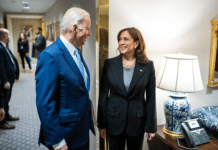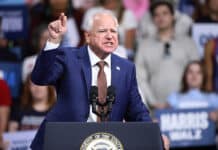(Daily Caller News Foundation) — Uncertainty for small business owners reached an all-time high amid a struggling U.S. economy, according to a recent survey.
![]()
The Uncertainty Index for small businesses rose 11 points to 103 in September, which is the highest reading recorded, according to survey results the National Federation of Independent Business (NFIB) released on Monday. Inflation and labor costs were two key concerns among business owners.
“Small business owners are feeling more uncertain than ever,” NFIB Chief Economist Bill Dunkelberg said in the Tuesday press release. “Uncertainty makes owners hesitant to invest in capital spending and inventory, especially as inflation and financing costs continue to put pressure on their bottom lines. Although some hope lies ahead in the holiday sales season, many Main Street owners are left questioning whether future business conditions will improve.”
NFIB’s Optimism Index, which measures the outlook of small business owners on the economy and their businesses, rose slightly from August by 0.3 to 91.5 in September, which is the 33rd month in a row below the 50-year average of 98, according to NFIB’s survey.
Twenty-three percent of small business owners said that inflation was their top problem, according to the press release. Additionally, 4% of business owners listed financing as a top concern.
Small businesses employ 45.9% of U.S. workers, according to a January report from Forbes Advisor. In the past 25 years, small businesses have generated nearly 13 million net new jobs.
Prices have risen since President Joe Biden took office in 2021, with inflation peaking at 9% in June 2022. Many Americans are having a difficult time making payments on credit cards and cars, and housing costs also saw a surge in July.
The inflation rate went down slightly in August to 2.5%, and the Federal Reserve announced in September that it was lowering its federal funds rate target by 0.50% in the hopes of boosting economic growth.
Vice President Kamala Harris proposed in September increasing the small business tax deduction from $5,000 to $50,000, despite previously voting against the Tax Cuts and Jobs Act (TCJA) in 2017, which allowed a deduction of up to 20% of income for some business owners.
NFIB did not immediately respond to a request for comment from the Daily Caller News Foundation.
This article was originally published at the Daily Caller News Foundation.
















